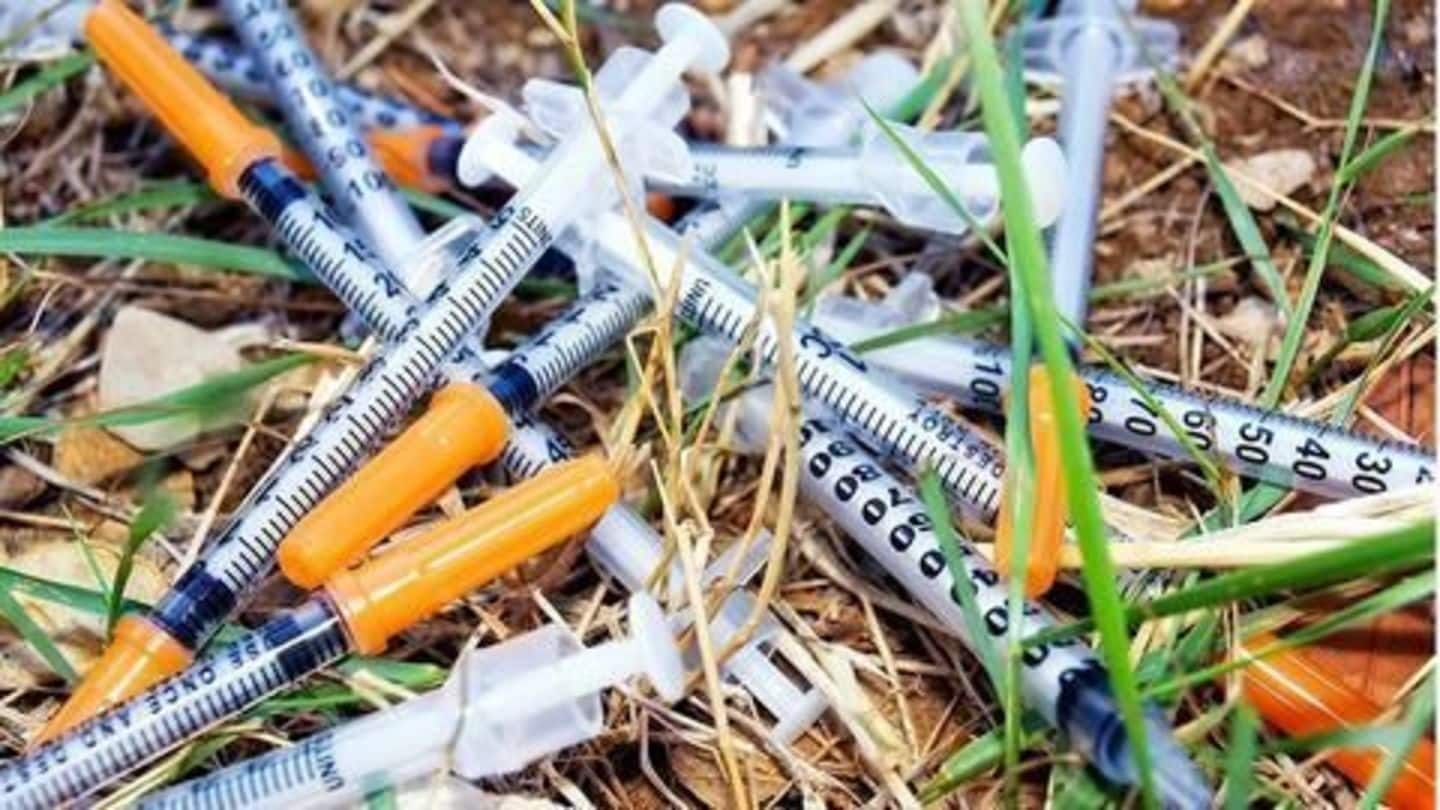
Pvt firm caught red handed violating biomedical waste disposal norms
What's the story
In a surprise inspection, Delhi Environment minister Imran Hussain caught a private biomedical waste treatment facility red handed in violating proper waste management rules, thereby, running the risk of causing the outbreak of diseases and endangering lives.
According to officials of Delhi Pollution Control Committee, M/s Biotic Waste Solutions Pvt Ltd wasn't complying to the new norms of handling and disposing biomedical waste.
Information
What all does biomedical waste consist of?
Biomedical waste is received from hospitals, laboratories, veterinary institutions, blood banks, animal houses and consists of human organs and other parts, carcasses, pharmaceutical waste, chemicals, X ray films, blood dressings. It also has plastic recyclables like urine bags, catheters, needles among others.
Background
The new Biomedical Waste Management rules: An insight
The new Biomedical Waste Management rules came into effect in March 2016. According to the new rules, the coverage has been increased and it mandates the pre treatment of lab waste, blood samples etc.
It mandates bar code system for effective control. The categorisation of the biomedical waste has also been made simpler to make it easy for proper segregation.
Background
Biomedical waste management: Old rules v/s new rules
The new Biomedical waste management rules replace the rules of 1998. In 2011, 1998 rules were amended.
The amendment included all people who generate, store and transport biomedical waste while 2016 rules clarify further by stating vaccination, blood, surgical camps and health care facilities (HCFs).
The number of categories have been reduced from 8 (2011) to 4 in 2016 to ease segregation at HCFs
Information
Threats of biomedical waste to human health
The biomedical waste contains bio hazardous contaminants and germs of serious diseases like Hepatitis B, Tetanus. Also if not segregated, they contaminate the non hazardous biomedical waste as well. That's why if not effectively treated and segregated, it poses a grave threat to human lives